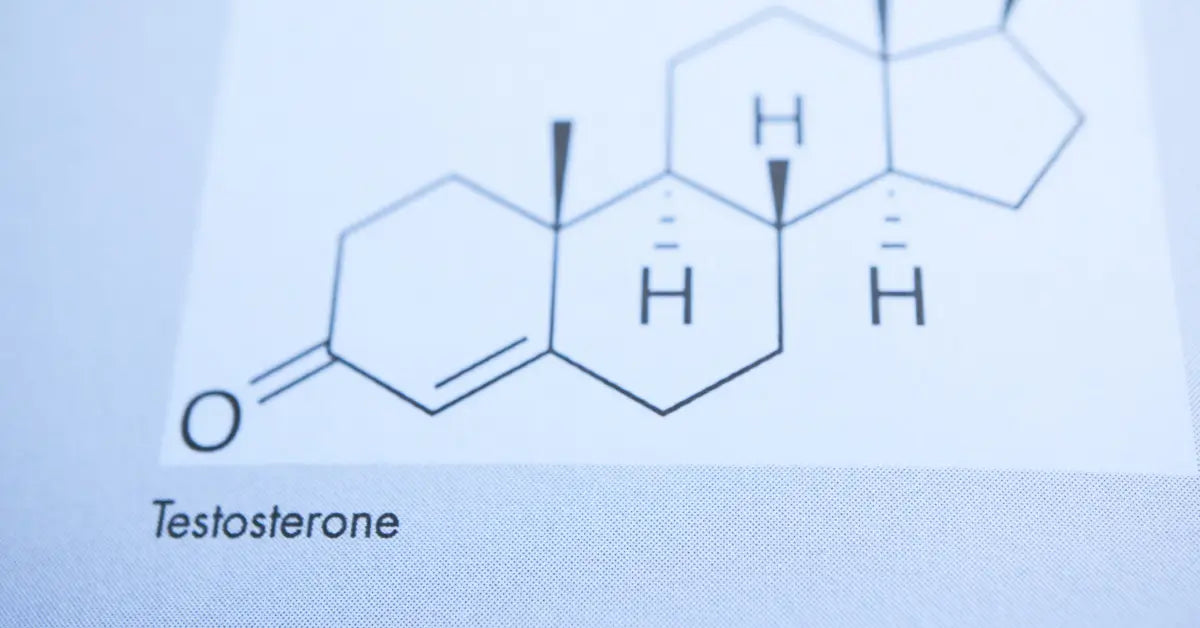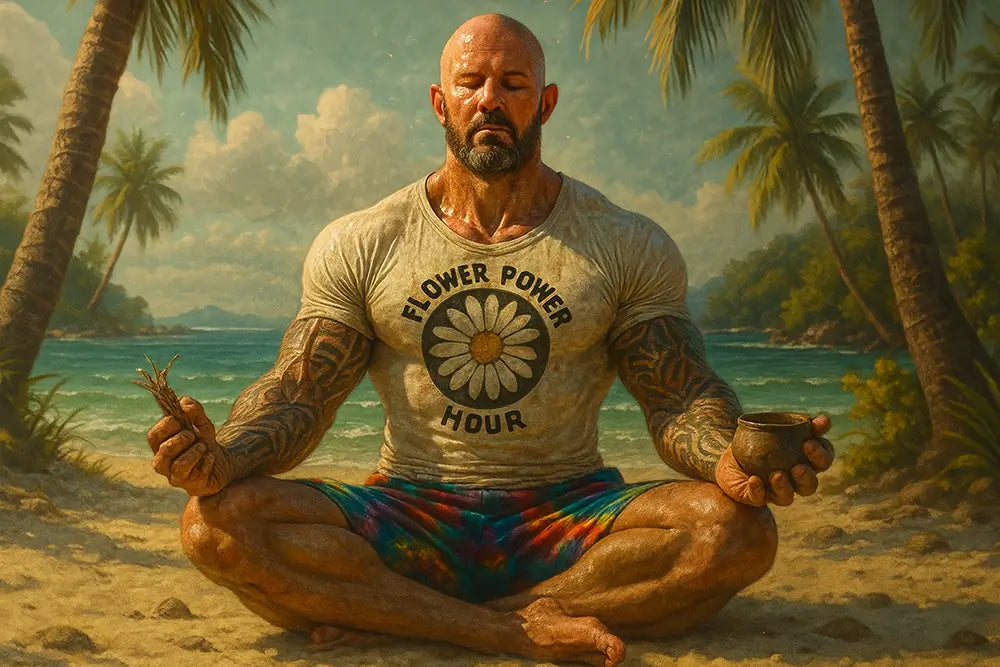Testosterone, a vital hormone, acts as a messenger in your body, directing the functioning of cells and organs. However, the hormone plays a crucial role in overall well-being, influencing muscle mass, mood, and energy levels. But, the major concern of today's men is their hormonal health.
An imbalance in testosterone levels, whether too high or too low, can lead to unwanted symptoms. Understanding your testosterone levels is the first step towards achieving that perfect balance.
Let's do a deep dive!

Men's Hormonal Health
Testosterone Levels
In men's hormonal vitality lies the key force of testosterone, a linchpin hormone that results in a number of benefits. Of the multiple forces that can influence vitality, from strengthening muscle and bone to supplementing libido and overall strength, testosterone is a pivotal force.
Like women, male hormones decline with age. However, this is happening at earlier ages than previous generations. As time goes on, testosterone production may become impaired by lifestyles or medical conditions. This tends to negatively impact other aspects of men's health. For example, they might have some changes in mood, their level or even kind of energy, memory and cognitive health and whether or not they can perform sexually.
Physical and Mental Well-being
Hormones are experienced and have a significant impact on a man's overall state of well-being. An imbalance in hormones can bring dark feelings, causing such things as depression, feeling that one is glass, anxiety, and less energy to boot. Acknowledging the intimate connection between hormonal health and overall vitality underscores the imperative of addressing these imbalances for a comprehensive sense of well-being.
Common Hormonal Health Disorders in Men
Men navigate their share of hormonal hurdles impacting their quality of life but they are talked about far less frequently than women. This needs to change as the challenges are as real as perimenopause and menopause - often impacting men’s wellbeing in similar ways.
Hypogonadism is characterised by low testosterone levels, a condition that can manifest as fatigue, diminished libido, and mood fluctuations amongst other symptoms. Grasping the intricacies of these common hormonal disorders empowers men to pursue timely diagnosis and explore suitable treatment, support and interventions.
Understanding Testosterone Levels
In men, testosterone takes the lead in driving factors such as sex drive, sperm production, muscle and bone growth, the development of male sex organs, and even influences the deepening of the voice and hair growth. Additionally, it plays a pivotal role in regulating mood and cognitive function.
Healthcare providers generally define normal testosterone levels for men falling within the range of 300 to 1,000 nanograms per deciliter (ng/dL). It's worth noting that these ranges might slightly differ based on the specific criteria used by your healthcare provider or laboratory.
Various factors can influence your testosterone levels, including age, sex, medications you may be taking, and other underlying health conditions. As one ages, the natural slowdown in testosterone production is a common occurrence and low levels or deficiency are common. There are plenty of ways that you can counteract the speed of the decline.
Average Testosterone Levels in Men By Ages
Doctors who are hormone replacement specialists often worry that some men might be facing the effects of low testosterone, even if their levels are considered "normal." To figure this out, specialists look beyond just the numbers in a testosterone blood test. They also consider things like a physical exam, current symptoms, and how severe the issues are.
So, what are the normal testosterone levels for men at different ages? Let's break it down:
Testosterone Levels in Men Over 30
Free: 8.7 – 25.1 pg/mL (picogram/milliliter)
Total: 219 – 1009 ng/dL (Normal: 600 – 675 ng/dL)
Testosterone Levels in Men Over 40
Free: 6.8 – 21.5 pg/mL
Total: 201 – 993 ng/dL (Normal: 500 – 550 ng/dL)
Testosterone Levels in Men Over 50
Free: 7.2 – 24.0 pg/mL
Total: 170 – 918 ng/dL (Normal: 400 – 450 ng/dL)
Testosterone Levels in Men 60 and Over
Free: 6.6 – 18.1 pg/mL
Total: 156 – 700 ng/dL (Normal: 300 – 350 ng/dL)
These numbers can affect how a man feels and looks. The specialists use these average testosterone levels by age as basic guidelines to understand each person better.
Symptoms of Imbalanced Testosterone Levels
Your body communicates subtly, and monitoring changes in testosterone levels—whether too high or too low—can provide vital insights.
High Testosterone Symptoms in Men
- Low sperm counts
- Higher risk of blood clots
- High blood pressure or cholesterol
- Fluid retention
- Heart muscle damage
- Liver disease
- Headaches
- Increased muscle mass
- Acne
- Weight gain
- Stunted growth (in teens)
- Frequent Mood swings
Low Testosterone Symptoms in Men
- Low sex drive
- Trouble achieving an erection
- Persistent fatigue
- Concentrating Issues
- Hair loss
- Low sperm count
- Fertility issues
- Depression
- Loss of muscle mass
- Weak bones
How to Increase Testosterone Levels Quickly
When it comes to boosting testosterone levels in men, several factors come into play, and it starts with what you put into your body.
It is vital to point out, though, that there is no such thing as boosting testosterone quickly unless you are taking either steroids or embarking on a long-term prescription / synthetic testosterone protocol under medical supervision. Even then, this requires patience and a long-term view towards optimisation.
It’s likely that your testosterone levels have been declining steadily for some years, and expecting quick results is unrealistic. Testosterone is produced daily and needs daily support to maintain optimal levels.
Diet and Nutrition: Fuel for Hormonal Health
Picture your body as a finely tuned machine – what you fuel it with matters. If it doesn’t have the raw materials to make hormones it just won’t be able to do this properly. Nutrition isn't just about satisfying hunger; it's a backstage director influencing the hormonal script. Essential nutrients like vitamins, minerals, and fats are the unsung heroes ensuring smooth hormonal health. For instance, omega-3 fatty acids produce hormones like serotonin, impacting mood and well-being and you need healthy levels of daily nutrients, vitamins and minerals to ensure you have the building blocks for testosterone production..
Lifestyle Choices
Exercise is a game-changer for hormonal balance. Engage in regular physical activity to enhance physical health and regulate hormone levels. The release of endorphins, those feel-good hormones, is a bonus. Equally crucial is ensuring you get enough quality sleep. Deep sleep triggers the release of growth hormones, contributing to tissue repair and renewal.
Additionally, stress management is a key ingredient. Stress can wreak havoc on hormones, especially cortisol. Adopt stress-relief strategies such as deep breathing, mindfulness exercises, and meditation to safeguard your hormonal health.
Age-Related Changes
Life unfolds in chapters, and each chapter brings its own hormonal narrative, particularly when we talk about men and testosterone levels. Understanding how hormones evolve across different stages of life empowers men to gracefully adapt to the changes that come their way.
- Puberty: The Catalyst for Change
The journey begins with puberty, marking a significant surge in testosterone levels. This hormonal boost sparks physical changes, including the development of male sex organs, the deepening of the voice, and the growth of facial and body hair. These changes are part of the natural script, preparing the body for adulthood.
- Adulthood: Prime Testosterone Years
Testosterone peaks in your late teenage years and should remain steady in your twenties if you have a good lifestyle. This is where the feel good benefits of testosterone are really experienced which you come to miss when it starts subsiding.. This phase is characterised by optimal muscle development, sustained energy levels, and a healthy libido. It's a period of hormonal balance that contributes to overall well-being and vitality.
- Ageing: The Natural Hormonal Transition
As men age, hormones can be unbalanced and production impaired. Testosterone levels start to gradually decline in your 30’s and you might start noticing subtle differences which become more apparent post 40. This can be when men start acknowledging the male menopause AKA Andropause which simply means age related testosterone decline - prompting symptoms like reduced muscle mass, lower energy levels, and alterations in mood and libido.
Environmental Factors & Hormonal Health
The outside world significantly influences your hormonal tale, with testosterone levels at the centre of this narrative. Stepping beyond your immediate surroundings exposes you to external elements that can shape your hormonal balance. Understanding this impact is crucial, particularly in a world of chemicals and pollutants.
- Air and Water Quality
The air you breathe and the water you consume play pivotal roles in your hormonal story. Chemicals and pollutants in the environment can potentially disrupt the delicate balance of hormones in your body. Some pollutants influence hormone receptors, creating a ripple effect on your overall hormonal health. We are learning more about the negative impact these are having on both male and female hormonal health.
- Reducing Exposure
In this context, understanding and actively reducing exposure becomes paramount. Identifying and limiting exposure to environmental pollutants can safeguard your hormonal balance. This involves being mindful of the air quality in your surroundings, opting for clean water sources, and making informed choices about the products you use daily.
- Endocrine Disruptive Compounds
Beyond the obvious pollutants, common items in your daily life may harbour endocrine-disrupting compounds. These compounds, often found in plastics, pesticides, and certain household products, have the potential to interfere with hormonal signalling in the body, including testosterone regulation. These are being blamed for the significant increase in men becoming oestrogen-dominant.
- Embracing Eco-Friendly Practices
To facilitate a cleaner hormonal period, consider adopting a lifestyle that prioritises natural and eco-friendly goods. Opt for sustainable activities that contribute to a healthier environment. Choosing products with minimal chemical impact and engaging in eco-conscious practices not only benefits the planet but also supports a hormonal balance that is essential for overall well-being.
Testing Testosterone Level
When concerns arise about your testosterone levels, your healthcare provider may suggest a blood test to gauge the hormone's quantity in your system.
In your blood, most testosterone is bound to two proteins, but there's also a portion called free testosterone or bioavailable testosterone, which isn't bound to proteins.
There are two primary types of testosterone blood tests:
- Total Testosterone: This comprehensive test measures both free testosterone and testosterone attached to proteins in the blood.
- Free Testosterone: Focusing solely on free testosterone, this test provides a specific measurement.
Typically conducted in the morning when testosterone levels peak, you might need multiple tests as levels fluctuate throughout the day.
Interestingly, some studies indicate that at-home saliva tests could also accurately measure testosterone levels, offering an alternative option for assessment.
Wrapping Up!
We now recognise that healthy ageing starts in your 20’s and testosterone health is no exception.
Your well-being is paramount to having healthy hormones. It may be time to embrace a commitment to well-being that prioritises your hormonal health in every chapter of life.
For more tips and advice on how to support your hormonal health and wellbeing, naturally check out our other blog






Share:
Unlocking the mystery of Andropause: What every man needs to know in his 30's, 40's and beyond.
Should I quit my low fat diet?